Basic information
of banks PKO Bank Polski, abbreviated as PKO BP, is a century-old store deeply rooted in the Polish financial soil, standing in the Eastern European financial market with a stable and innovative attitude. It is not only the financial pillar of Poland, but also carries the historical mission of the country's economic development. As a mixed-ownership bank, it combines a state-owned background with the flexibility of a commercial operation, serving primarily in Poland while making a presence in the regional market.
Name & Background
The full name is Powszechna Kasa Oszczędności Bank Polski Spółka Akcyjna (General Savings Bank Polish Joint Stock Company), PKO BP was born in 1919 as the National Savings Bank of Poland to encourage national savings. The headquarters is located in Warsaw, the capital of Poland, at ul. Puławska 15, 02-515 Warsaw, Poland。 In the shareholder structure, the Polish government holds about 31.39% of the shares through state-owned entities such as the Ministry of Finance, with the remainder tradable in the open market, and the bank is listed on the Warsaw Stock Exchange (ticker symbol: PKO). This hybrid public-private ownership structure allows PKO BP to maintain its national strategic orientation while maintaining market-oriented competitive vitality.
Scope of Services
PKO BP's service network is centered in Poland, covering all major cities in the country, with a small number of branches in Ukraine, Germany and other places, showing its ambition for regional expansion. As of the latest data, the bank has about 1,200 offline branches spread across Poland's urban and rural areas, ensuring that customers are within reach. The ATM network is equally dense, with around 3,000 owned ATMs plus interconnection with the national ATM network for easy cash deposits and withdrawals. Whether it's bustling Warsaw or remote countryside, PKO BP's iconic orange logo is a symbol of reliable financial services.
Regulation & Compliance
PKO BP is subject to dual supervision by the Polish Financial Supervisory Authority (Komisja Nadzoru Finansowego, KNF) and the European Central Bank (ECB) at the EU level, and strictly follows the EU Capital Requirements Directive (CRD IV/CRR) and the Polish Banking Act. As a member of the Polish Deposit Insurance System (Bankowy Fundusz Gwarancyjny, BFG), customer deposits are insured up to €100,000 (approximately PLN 430,000). In terms of compliance records, PKO BP has not had any major violations in recent years, and its regulatory rating is stable, reflecting its rigorous approach to risk management and compliance.
Financial health
PKO BP's financial performance is a benchmark for the Polish banking sector. According to the latest public data, the capital adequacy ratio (CAR) is around 17%, well above the EU's minimum requirement of 10.5%, indicating its strong resilience. The non-performing loan ratio (NPL) was kept at around 4.5%, which is lower than the industry average, reflecting the excellent asset quality. The Liquidity Coverage Ratio (LCR) is as high as 150%, ensuring that short-term funding needs can be easily met even in volatile markets. These metrics make PKO BP a trusted choice for deposits and loans.
Deposit & Loan Products
Deposits: PKO BP offers a wide range of deposit products, with interest rates ranging from 0.1% to 0.5% for demand deposits and 1.5%-3.5% for time deposits (1 month to 3 years), depending on the amount and tenor. The high-yield savings account "PKO Konto Oszczędnościowe Plus" offers a promotional interest rate of up to 4% (for new funds, limit conditions). Large certificates of deposit (similar to CDs) are suitable for long-term savings, with an interest rate of up to 3.8% (more than 1 year).
Loans: Mortgage interest rates are usually 4.5%-6.5% (fixed or floating), with a down payment of 10%-20%, and approval focuses on credit history and income stability. The interest rate on car loans is about 5%-7%, and the term is flexible (1-7 years). Personal lines of credit range from 8% to 12% and can be borrowed up to PLN 200,000, with some products offering early repayment without penalty. Flexible repayment options, such as deferred payments, are negotiated with the bank and are tailored to specific customer groups.
List of common fees
PKO BP's fee structure is friendly to the average user, but attention needs to be paid to the details. The account management fee is usually 0-10 PLN per month, and the conditions for the exemption of the monthly fee include a minimum transaction amount or a fixed deposit. Domestic transfers are free of charge (via online banking or APP), and cross-border transfers (SEPA zone) are about PLN 10-20 per transaction. Interbank ATM withdrawals cost PLN 5 per time, and owned ATMs are free of charge. Overdraft fees are calculated on a daily basis and interest rates are around 10%-15%/year. Hidden fee alert: Some accounts require a minimum balance (e.g. PLN 1,000), otherwise a penalty of PLN 5-10 may be charged.
Digital Service Experience
PKO BP's digital banking platform "iPKO" has been well received, with its mobile app rating of around 4.5/5 on the App Store and Google Play. Core features include facial recognition login, real-time transfers (with Elixir and SEPA support), bill management, and portfolio tracking. In terms of technological innovation, the bank launched an AI-powered virtual assistant to optimize the customer consultation experience, and supported open banking APIs to allow seamless access to third-party fintech applications. Robo-advisory services are being piloted for clients looking to optimize their portfolios.
Quality of customer service
PKO BP offers round-the-clock customer support, a responsive telephone hotline (+48 22 100 30 00) and a live chat function on weekdays and weekends. The response time on social media such as X and Facebook is usually within 1 hour. Complaint handling is efficient, with an average resolution time of about 7-14 days, and a user satisfaction score of more than 80%. Multi-language support includes English, Ukrainian, and German, making it convenient for cross-border customers and foreign residents in Poland.
Safety and security measures
In terms of fund security, PKO BP participates in the Polish Deposit Insurance Scheme, which protects deposits of up to €100,000. Anti-fraud technologies include real-time transaction monitoring and two-factor authentication (SMS or APP confirmation). In terms of data security, the bank is ISO 27001 certified and uses end-to-end encryption to protect customer information. The failure to report major data breaches in recent years demonstrates its high standards of cybersecurity.
Featured Services & Differentiated
PKO BP performs well in the segment. The student account "PKO Konto dla Młodych" is very popular with young people because it has no management fee and comes with a digital wallet function. Exclusive wealth management products for the elderly provide high-yield fixed deposits and a simplified operation interface. In terms of green finance, banks have launched ESG investment funds and green loans to support sustainable projects. High-net-worth clients can enjoy private banking services with a threshold of around PLN 1,000,000, customized wealth management and tax planning.
Market Position & Accolades
PKO BP is the largest bank in Poland, ranked first in the country by asset size and among the top 500 banks in the world (according to The Banker). In recent years, it has won a number of awards, including "Best Digital Bank in Poland" (Euromoney Awards) and "Most Innovative Retail Bank" (Global Finance). Its investment in digital transformation and customer experience makes it unique in the Eastern European financial market.
















